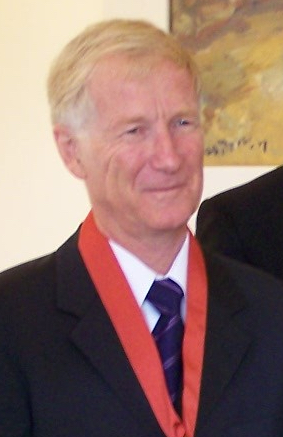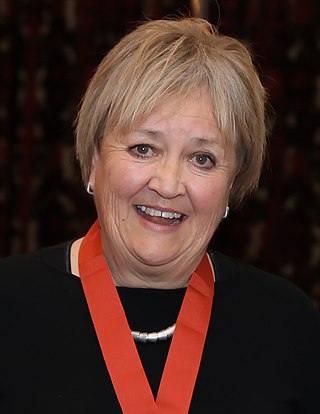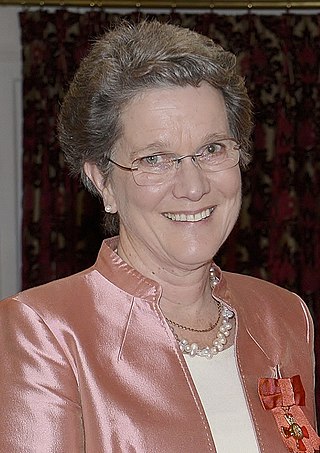Dame Patricia Rose Bergquist was a New Zealand zoologist who specialised in anatomy and taxonomy. At the time of her death, she was professor emerita of zoology and honorary professor of anatomy with radiology at the University of Auckland.
The Cawthron Institute is New Zealand's largest independent science organisation, specialising in science that supports the environment and development within primary industries. Cawthron has its main facilities in Nelson. It works with regional councils, government departments, major industries, private companies, and other research organisations throughout New Zealand and around the world. Cawthron employs approximately 300 scientists, laboratory technicians, researchers and specialist staff from 26 countries. It has both chemistry and microbiology labs, and has a major focus on food related testing for food safety and export certification. Cawthron holds IANZ accreditation for a wide range of tests. Its scientists include experts in aquaculture, marine and freshwater resources, food safety and quality, algal technologies, biosecurity and analytical testing.

Christine Coe Winterbourn is a New Zealand biochemist. She is a professor of pathology at the University of Otago, Christchurch. Her research in the biological chemistry of free radicals earned her the 2011 Rutherford Medal and the Marsden Medal, the top awards from each of New Zealand's two top science bodies.

Kathleen Maisey Curtis, Lady Rigg was a New Zealand mycologist and was a founder of plant pathology in New Zealand.
Una Vivienne Cassie Cooper was a New Zealand planktologist and botanist.

Jacqueline Sara Rowarth is a New Zealand and British agronomist, dairy farmer and science administrator.

Edward Neill Baker is a New Zealand scientist specialising in protein purification and crystallization and bioinformatics. He is currently a distinguished professor at the University of Auckland.

Gillian Shirley Wratt is a New Zealand botanist and science administrator. She was the first woman director of the New Zealand Antarctic Programme (1992–1996) and made a Member of the New Zealand Order of Merit for services to Antarctica.

Helen Hannah Rigg Hughes is a New Zealand botanist. She served as New Zealand's first Parliamentary Commissioner for the Environment from 1987 to 1996.

Dianne Christine McCarthy is a New Zealand scientist and professional director, who was the chief executive of the Royal Society of New Zealand between 2007 and 2014. She lives in Blenheim.

Wendy Alison Nelson is a New Zealand marine scientist and world expert in phycology. She is New Zealand's leading authority on seaweeds. Nelson is particularly interested in the biosystematics of seaweeds/macroalgae of New Zealand, with research on floristics, evolution and phylogeny, as well as ecology, and life history studies of marine algae. Recently she has worked on the systematics and biology of red algae including coralline algae, distribution and diversity of seaweeds in harbours and soft sediment habitats, and seaweeds of the Ross Sea and Balleny Islands.
Allison Joy Haywood is a planktonologist from New Zealand.

Jennifer Barbara Carryer is a New Zealand nursing academic. She is currently a full professor of nursing at the Massey University and executive director of the New Zealand College of Nurses.

Hinemoa Elder is a New Zealand youth forensic psychiatrist and former television presenter. She is a professor in indigenous research at Te Whare Wānanga o Awanuiārangi, a fellow of the Royal Australian and New Zealand College of Psychiatrists, and sits on the Māori Advisory Committee of the Centre for Brain Research.

Nicola Mary Shadbolt is a New Zealand farmer, academic and company director. She is currently a full professor at the Massey University and Chair of Plant & Food Research.

Janet Mary Grieve, also known as Janet Bradford-Grieve and Janet Bradford, is a New Zealand biological oceanographer, born in 1940. She is researcher emerita at the National Institute of Water and Atmospheric Research in Wellington. She has researched extensively on marine taxonomy and biological productivity. She was president of both the New Zealand Association of Scientists (1998–2000) and the World Association of Copepodologists (2008–11).

Philippa Helen Gander is a New Zealand sleep researcher. In 2021, she was conferred with the title of emeritus professor by Massey University, where she had been inaugural director of the Sleep/Wake Research Centre until stepping down from that role in 2019.

Dame Peggy Gwendoline Koopman-Boyden is a New Zealand gerontologist. A professor of social gerontology at the University of Waikato, she was accorded the title of professor emeritus when she retired in 2016.

Susanna Wood is a New Zealand scientist whose research focuses on understanding, protecting and restoring New Zealand's freshwater environments. One of her particular areas of expertise is the ecology, toxin production, and impacts of toxic freshwater cyanobacteria in lakes and rivers. Wood is active in advocating for the incorporation of DNA-based tools such as metabarcoding, genomics and metagenomics for characterising and understanding aquatic ecosystems and investigating the climate and anthropogenic drivers of water quality change in New Zealand lakes. She has consulted for government departments and regional authorities and co-leads a nationwide programme Lakes380 that aims to obtain an overview of the health of New Zealand's lakes using paleoenvironmental reconstructions. Wood is a senior scientist at the Cawthron Institute. She has represented New Zealand internationally in cycling.

Sylvia Vine Sheat Rumball is a New Zealand scientist and an international expert in scientific research ethics.
















